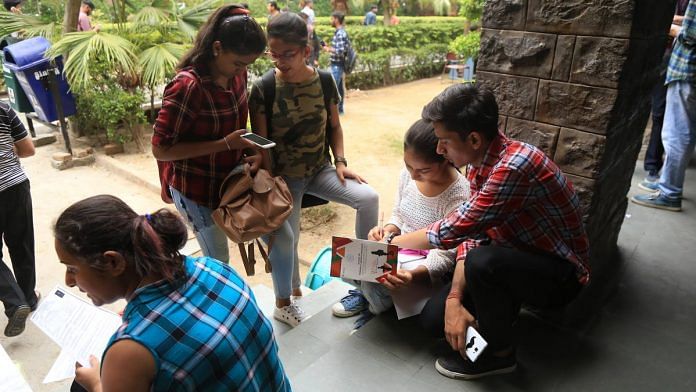I listened to a lot of music by the Swedish band ABBA in high school and I distinctly remember a line from the song ‘Dancing Queen’: “Dancing Queen, young and sweet, only seventeen”.
I remember listening to it in class 12 and wanting to cry my eyes out. I also remember reading the novel Perks of Being a Wallflower by Stephen Chbosky, and hoping my last year of school doesn’t just remain a year in my life. Sadly, that is exactly what happened.
I opted for PCB (Physics, Chemistry and Biology) in class 11 and thus began a race against time, fighting all odds and cramming everything. Honestly, the academic part is not hard. If you like science, you are not going to regret your choice.
It is what accompanies this choice like a metaphoric guest in the house who just won’t leave — the intense academic pressure. The slow burning anxiety and the panic-inducing atmosphere become your best friend. Frequent burnouts and mental health disorders, such as depression and anxiety to name a few, also become the norm.
Practically and statistically impossible to get into a medical college
Let’s look at statistics of the two most famous entrance exams in the country — the JEE for engineering colleges and IITs and NEET for medical and dental colleges.
In 2019, nearly 15,19,375 students registered for NEET and 13 lakh ended up attempting the exam. Around half qualify, which means they score above a certain cut off.
But do you know the number of medical colleges in India? 260. And the number of students who can study in these medical colleges: 35,540. Needless to say, students opting for these courses are increasing exponentially compared to the seats available.
This is exactly why the situation is as grave as it is. Students try their hardest and they work till they can’t do it anymore. They invest every ounce of grit and effort in them, just to secure a seat. But it is practically and statistically impossible to acquire a seat. Now, imagine the insurmountable stress this puts on an 18-year-old.
Let me break it down for you. I come from a line of privilege. I was enrolled in a coaching institution and for two years I studied for NEET because I could afford it.
I took a drop year, which is yet another ordeal by the innocent on the innocent. Coaching institutes in this country run a dirty business of ranks and play with children’s lives adroitly, under the veil of goodwill. They claim that “we only want the best for your children” but forget to mention “we only want the best children”.
Once you are enrolled in a coaching centre, it is a world of its own. In face, coaching centres in India are analogous to Kota in Rajasthan.
According to a survey by The Hindu, in 2019, 28 students killed themselves in Kota every week.
Competition in India is cutthroat and there is no denying that. However, how valid is it to subject students to this chain of burn outs and distress at such an early stage in their life needs to be questioned.
Silver lining
Entrance exams and the pressure they create on students has been a heated topic for the education ministry for the past decade. Especially in light of the exponential rise in student suicide rates across the country.
The monopoly by leading coaching institutions on ‘producing’ rank holders has made these entrances more about commercial gain than a ticket to colleges for students.
However, amid the turmoil and yearly frenzy of entrance exams and college admissions came a silver lining — National Education Policy 2020.
The National Education Policy 2020, approved on 29 July 2020, outlines the vision of India’s new education system.
It is the beginning of a radical change in this country’s education system.
Updates like introduction of coding from class 6, abolishing the current 10+2 system for a 5+3+3+4 system, major reforms in the board exam system are all part of the NEP. The education ministry notice and booklet issued by them had a whole lot to say about higher education and HEI (Higher Education Institutions).
Since this is only a ‘vision’, no concrete bills or laws have been passed out to implement said vision. The plan to scrap all entrance exams and begin a common exam to get into colleges, similar to the SATs in the US, and to induce a multidisciplinary and holistic educational environment for every student is an extremely positive approach. But the feasibility of this move will be revealed only with time and if there is proper implementation.
However, what matters more than anything is students’ mental health and the promise of a bright and sustainable future.
Ananya Chauhan is a student of Delhi University



